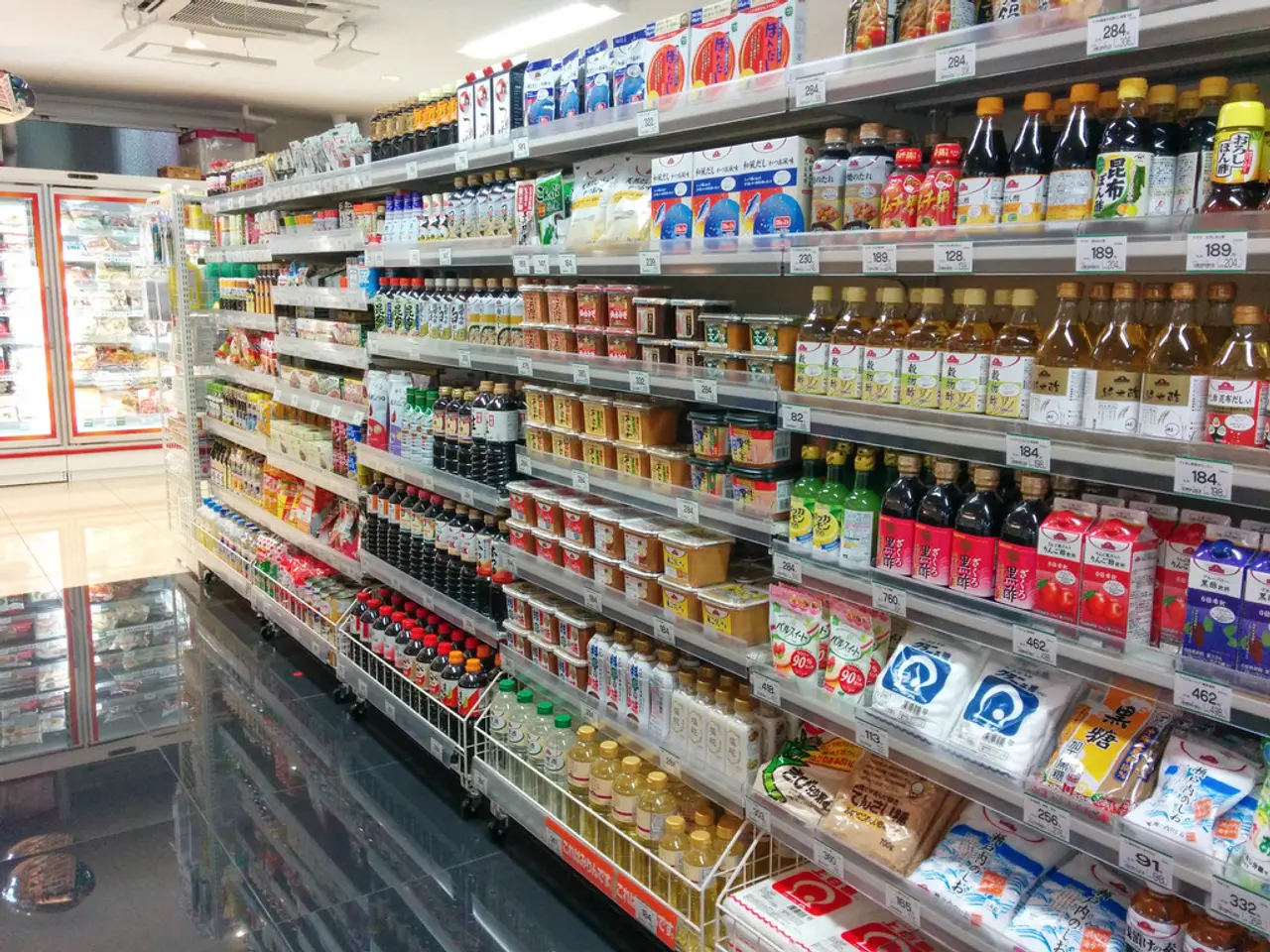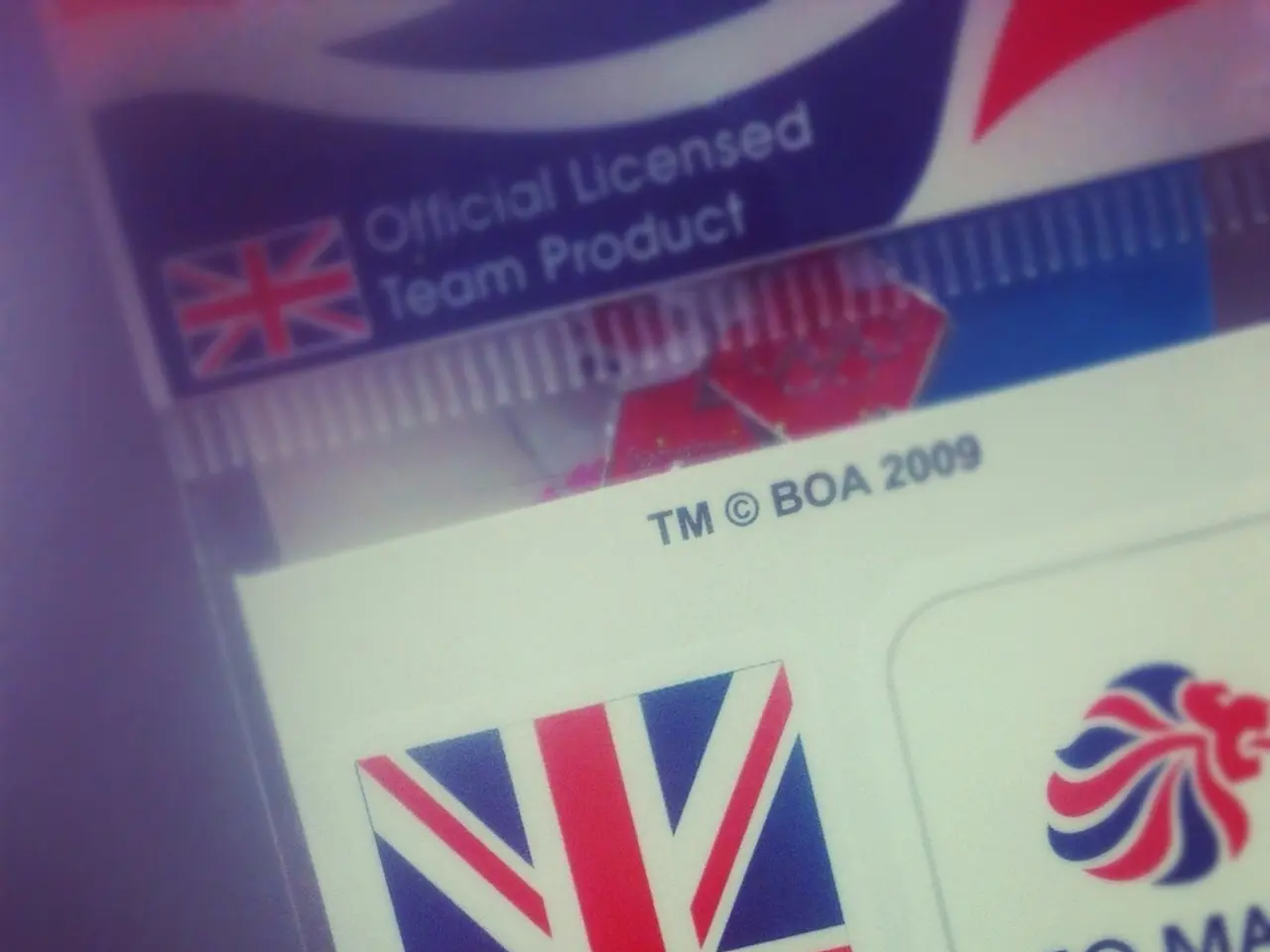Consumers in America Alter Spending Habits due to Tariffs Impositions
In a move that could impact household budgets across the nation, President Donald Trump has announced tariff rates on imports from certain countries, effective from August 1 [1]. This decision is expected to lead retailers to adjust their pricing strategies primarily by raising prices due to increased import costs.
Several key points emerge regarding how retailers may respond. Major companies like Walmart, Best Buy, Target, and Stanley Black & Decker have already indicated potential price hikes due to tariffs [1][2][3]. The anticipated spending on back-to-school items is $378 per child, a significant increase from last year's $311, as consumers brace for price increases on a range of products including electronics, produce, furniture, and automobiles [4].
Price increases may not be immediate but could have a lag of two to three months, reflecting the time needed for companies to adapt supply chains and customer pricing systems. For instance, Stanley Black & Decker’s CEO mentioned that pricing actions might lag formal tariff implementation by a few months [2].
Retailers may seek to offset tariff impacts through a combination of supply chain adjustments and strategic pricing, but the general trend is towards higher retail prices passed to consumers because tariff costs increase import prices [2]. Certain product categories are especially vulnerable to price hikes due to tariffs, such as fresh produce from Mexico, electronics from China, steel-based products, automobiles, and pharmaceuticals [3][4].
The overall tariff-driven price increases contribute to inflation, with the Federal Reserve forecasting an uptick in inflation measures partly due to tariffs, which influences retailers' cost bases and further justifies price increases [1].
Meanwhile, a survey by Savanta reveals that 77% of Americans believe tariffs will impact their household finances, and 71% of survey respondents have changed or are considering altering their purchasing decisions due to tariffs [5]. More than half (54%) of survey respondents believe that tariffs will hurt the economy [6].
In response to these economic stressors, consumers are showing real-time behavioral shifts, from brand loyalty to budgeting. Jennifer Kim, research analyst at Savanta, stated that consumers are making these changes to cope with the increased costs [7]. Two-thirds of survey respondents have seen price increases on groceries, and 61% of survey respondents have bought cheaper brands in recent months to combat price hikes [6].
Even those who don't follow trade headlines are feeling the economic stress, according to Jennifer Kim [7]. Among the factors retailers need to consider are whether to pass the price increases on to consumers, how high they should raise their prices, and if they need to adjust their product assortment.
As the implementation of new tariffs unfolds, it remains to be seen how consumers and retailers will navigate these price increases and economic challenges in the coming months.
References: [1] https://www.cnbc.com/2019/07/10/trump-admin-to-unveil-new-tariffs-on-chinese-goods-ahead-of-g20-summit.html [2] https://www.bloomberg.com/news/articles/2019-07-10/trump-said-to-unveil-new-tariffs-on-chinese-goods-ahead-of-g20 [3] https://www.reuters.com/article/us-usa-trade-tariffs/trump-administration-to-unveil-new-tariffs-on-chinese-goods-ahead-of-g20-summit-idUSKCN1UQ1XJ [4] https://www.washingtonpost.com/business/2019/07/10/trump-said-to-unveil-new-tariffs-on-chinese-goods-ahead-g20-summit/ [5] https://www.savanta.com/news/tariffs-impact-household-finances-survey-finds/ [6] https://www.cnbc.com/2019/07/11/back-to-school-shoppers-expect-to-spend-more-due-to-tariffs-and-supply-chain-issues.html [7] https://www.cnbc.com/2019/07/10/consumers-are-changing-their-behavior-due-to-tariffs-says-research-analyst.html
- The announced tariffs by President Trump could lead retailers like Walmart, Best Buy, Target, and Stanley Black & Decker to raise prices, potentially impacting household budgets due to increased import costs.
- With an anticipated spending of $378 per child on back-to-school items, consumers are bracing for price increases across various product categories such as electronics, produce, furniture, and automobiles due to tariffs.
- Retailers, seeking to offset tariff impacts, may adopt a combination of supply chain adjustments and strategic pricing, but the general trend is towards higher retail prices that are likely to be passed on to consumers.
- The Federal Reserve has forecasted an uptick in inflation measures due to tariffs, which could further justify price increases and hurt the overall economy, as revealed by a survey showing that 54% of Americans believe tariffs will hurt the economy.




